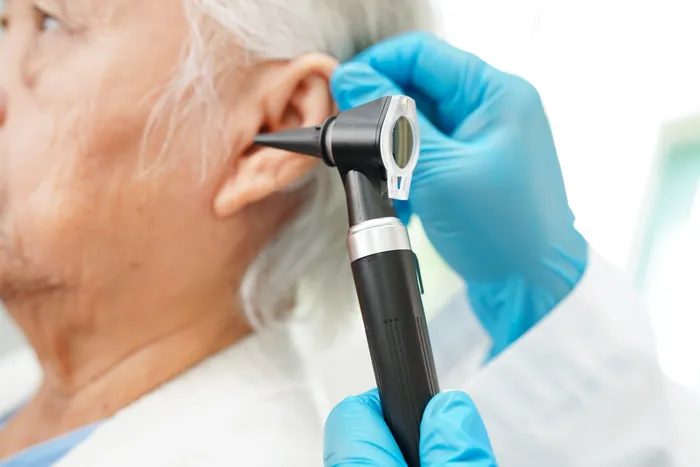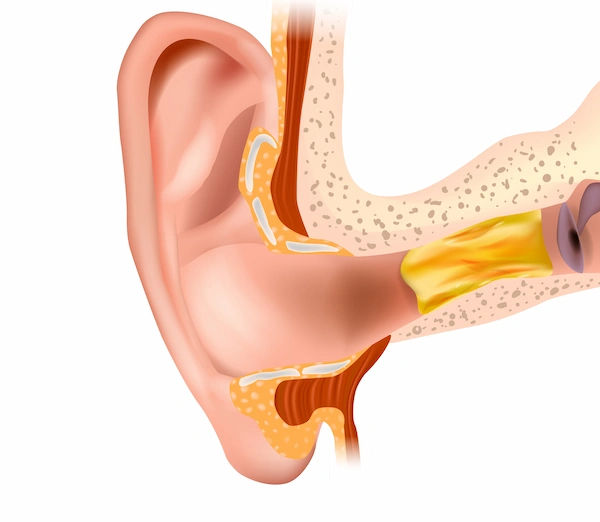What is Earwax and Its Function?
Know about the earwax, its function, when is it a problem, how to clean it safely and what not to do and more.


What is Earwax and Its Function?
Introduction
Earwax is something we all have, but many of us don’t fully understand its purpose. Some people think of it as just dirt that needs to be cleaned out, but earwax actually plays a crucial role in keeping our ears healthy.
In this article, we’ll explore what earwax is, why our bodies produce it, and how to take care of our ears properly.
What Is Earwax?
Earwax, also known as cerumen, is a natural substance produced by glands in the ear canal. It is a mix of:
- Dead skin cells
- Oil secreted by glands in the ear
- Dust and other tiny particles trapped in the ear
The texture and color of earwax can vary—some people have soft, yellow wax, while others may have dry, flaky, or darker wax. Both types are normal and serve the same purpose.
Consult ENT specialist for Personalised Advice
Why Do We Have Earwax?
Earwax isn’t just useless gunk—it has several important functions:
1. Protects the Ear Canal – Earwax acts as a barrier, preventing dust, dirt, and bacteria from entering deep into the ear.
2. Keeps the Ears Moisturized – The oils in earwax prevent the ear canal from becoming dry and itchy.
3. Prevents Infections – Earwax has antibacterial properties that help protect against infections.
4. Traps Foreign Particles – Small insects, dirt, or debris that enter the ear get stuck in the wax before they can cause harm.
5. Helps with Cleaning – Normally, earwax slowly moves outward on its own, carrying trapped particles with it.
When Does Earwax Become a Problem?
While earwax is beneficial, too much of it or improper cleaning can lead to issues like:
- Ear Blockage – Excessive wax buildup can harden and block the ear canal, causing discomfort or hearing loss.
- Itching or Discomfort – Some people may feel irritation if wax is pushed too deep into the ear.
- Tinnitus (Ringing in the Ear) – A blockage can sometimes cause ringing or buzzing sounds.
- Ear Infections – If wax traps moisture, it can lead to infections.
How to Safely Clean Your Ears?
Many people use cotton swabs (Q-tips), bobby pins, or even fingers to clean their ears, but this can push wax deeper, leading to blockages or injuries. Here’s how to clean your ears safely:
- Let Earwax Come Out Naturally – The ear is self-cleaning, and wax usually moves out on its own.
- Use a Damp Cloth – Gently wipe the outer ear with a warm, damp cloth.
- Try Ear Drops – Over-the-counter ear drops can soften wax for easier removal.
- Visit a Doctor – If you have pain, hearing loss, or excessive wax, a doctor can safely remove it.
What NOT to Do:
Things to avoid include:
- Avoid Cotton Swabs – They push wax deeper and can damage the eardrum.
- Don’t Use Sharp Objects – Hairpins or keys can scratch the ear canal.
- Skip Ear Candles – They are unsafe and can cause burns or injuries.
When to See a Doctor?
Most earwax issues can be managed at home, but you should see a doctor if you experience:
- Severe ear pain
- Sudden hearing loss
- Dizziness or balance problems
- Persistent ringing in the ear
- Discharge or bleeding from the ear
A doctor can safely remove excess wax using special tools or irrigation methods.
Final Thoughts
Earwax is a natural and necessary part of ear health. Instead of trying to remove it aggressively, let your body do its job. If you experience discomfort or hearing problems, consult a doctor rather than trying risky home remedies.
Consult ENT specialist for Personalised Advice

Dr. Sreeram Valluri
Ent Specialist
15 Years • MBBS, MS ENT, HEAD & NECK SURGERY
Hyderabad
Apollo Hospitals Jubilee Hills, Hyderabad

Dr. Ravi Y L
Ent Specialist
15 Years • MBBS, MS (ENT)
Hyderabad
Apollo Hospitals Jubilee Hills, Hyderabad
(175+ Patients)

Dr. Sreeram Valluri
Ent Specialist
15 Years • MBBS, MS ENT
Manikonda Jagir
Apollo Clinic, Manikonda, Manikonda Jagir

Dr. Ashwani Kumar
Ent Specialist
11 Years • MBBS, DNB (Otorhinolaryngology)
Delhi
Apollo Hospitals Indraprastha, Delhi
(50+ Patients)

Dr Manoj Jondhale
Ent Specialist
7 Years • MBBS , M.S., DNB, FCPS (Gold Medalist) Fellowship: Fellow in Head Neck Oncosurgery
Mumbai
Apollo Hospitals CBD Belapur, Mumbai


